-
 Bitcoin
Bitcoin $114400
0.68% -
 Ethereum
Ethereum $3550
2.48% -
 XRP
XRP $3.001
4.99% -
 Tether USDt
Tether USDt $0.9999
0.01% -
 BNB
BNB $757.6
1.46% -
 Solana
Solana $162.9
1.07% -
 USDC
USDC $0.9998
0.00% -
 TRON
TRON $0.3294
0.91% -
 Dogecoin
Dogecoin $0.2015
2.46% -
 Cardano
Cardano $0.7379
2.01% -
 Stellar
Stellar $0.4141
8.83% -
 Hyperliquid
Hyperliquid $37.83
-1.91% -
 Sui
Sui $3.454
0.76% -
 Chainlink
Chainlink $16.62
3.53% -
 Bitcoin Cash
Bitcoin Cash $554.6
2.84% -
 Hedera
Hedera $0.2486
3.91% -
 Ethena USDe
Ethena USDe $1.001
0.00% -
 Avalanche
Avalanche $21.95
3.34% -
 Toncoin
Toncoin $3.563
-2.85% -
 Litecoin
Litecoin $112.7
2.65% -
 UNUS SED LEO
UNUS SED LEO $8.977
0.13% -
 Shiba Inu
Shiba Inu $0.00001232
1.85% -
 Uniswap
Uniswap $9.319
2.93% -
 Polkadot
Polkadot $3.632
1.38% -
 Monero
Monero $307.2
2.36% -
 Dai
Dai $0.9997
-0.03% -
 Bitget Token
Bitget Token $4.340
0.91% -
 Pepe
Pepe $0.00001048
1.07% -
 Cronos
Cronos $0.1348
3.26% -
 Aave
Aave $261.5
1.93%
Does the virtual economy in the Metaverse rely on NFT technology?
The Metaverse's virtual economy utilizes NFTs for digital asset ownership, but isn't solely reliant on them; in-game currencies and DAOs also play vital roles, creating a complex and evolving ecosystem facing scalability, interoperability, and regulatory hurdles.
Mar 07, 2025 at 12:54 am
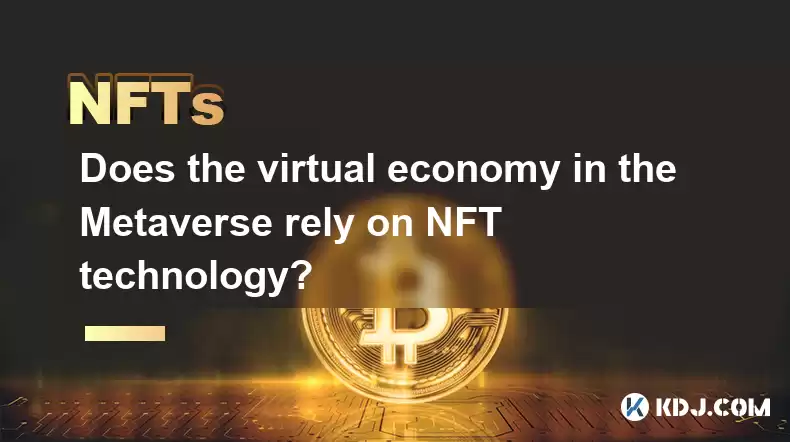
Key Points:
- The Metaverse and NFTs have a symbiotic relationship, but the Metaverse's virtual economy doesn't solely rely on NFT technology.
- NFTs provide a crucial mechanism for digital asset ownership and transfer within Metaverse environments.
- Other technologies, such as in-game currencies and decentralized autonomous organizations (DAOs), also play significant roles.
- The relationship is complex and evolving, with ongoing debates about the best ways to integrate these technologies.
- Scalability, interoperability, and regulatory uncertainty are key challenges facing this integration.
Does the virtual economy in the Metaverse rely on NFT technology?
The Metaverse, a persistent, shared, 3D virtual world, is envisioned as having a robust virtual economy. A key question arises: is this economy fundamentally reliant on Non-Fungible Tokens (NFTs)? The answer is nuanced. While NFTs play a crucial role, they are not the sole foundation. The Metaverse's economic ecosystem is multifaceted, drawing upon various technological advancements.
NFTs offer a solution to the long-standing problem of digital scarcity and verifiable ownership. Within the Metaverse, NFTs can represent unique virtual items, from digital land plots and avatars to in-game assets and virtual wearables. This ownership is recorded on a blockchain, ensuring immutability and transparency. This verifiable ownership is essential for creating a trustworthy and secure virtual marketplace.
However, the Metaverse economy extends beyond NFTs. Many Metaverse platforms utilize their own native in-game currencies. These currencies facilitate transactions within the platform's ecosystem, enabling users to buy and sell goods and services without necessarily relying on NFTs. This creates a self-contained economic system.
Decentralized Autonomous Organizations (DAOs) are also gaining prominence within Metaverse economies. DAOs leverage smart contracts to govern and manage aspects of the virtual world, such as land ownership, resource allocation, and community governance. While DAOs can utilize NFTs, they are not exclusively dependent on them. They represent a different layer of decentralized governance and economic control.
The interaction between NFTs and other technologies is complex. For example, some Metaverse platforms use NFTs to represent ownership of in-game assets, but the in-game currency facilitates the actual exchange of these assets. This hybrid approach allows for greater flexibility and efficiency within the virtual economy.
The relationship between the Metaverse and NFTs is constantly evolving. New technologies and approaches are continuously being explored, leading to a dynamic and rapidly changing landscape. The integration of NFTs and other blockchain technologies is still in its early stages, and there are many challenges to overcome.
One major challenge is scalability. The high transaction fees and slow processing speeds associated with some blockchains can hinder the smooth operation of a large-scale Metaverse economy. Solutions like layer-2 scaling solutions are being explored to address this.
Interoperability is another crucial issue. Different Metaverse platforms often use different blockchain technologies and standards, making it difficult for users to seamlessly transfer assets between platforms. The development of interoperable standards and protocols is vital for a truly interconnected Metaverse economy.
Regulatory uncertainty poses a further challenge. The legal frameworks governing virtual assets and digital economies are still under development. Clearer regulations are needed to ensure the security and stability of the Metaverse economy and to protect users from fraud and other risks.
The future of the Metaverse economy will depend on the successful integration of various technologies, including NFTs, in-game currencies, DAOs, and potentially other innovations yet to emerge. The ultimate success hinges on addressing the challenges of scalability, interoperability, and regulatory uncertainty.
Frequently Asked Questions:
Q: Are NFTs essential for a functioning Metaverse economy?
A: No, while NFTs provide a powerful mechanism for digital ownership and facilitate certain aspects of the Metaverse economy, a fully functioning virtual economy can also exist using other systems, such as in-game currencies and other forms of digital asset management.
Q: What are the limitations of using only NFTs in the Metaverse economy?
A: Relying solely on NFTs can lead to high transaction fees, scalability issues, and limited interoperability between different platforms. Furthermore, the technical complexity of NFTs might create barriers for entry for some users.
Q: How do in-game currencies interact with NFTs in the Metaverse?
A: In-game currencies often act as the medium of exchange for transactions involving NFTs. Users may buy and sell NFTs using the platform's native currency, creating a more fluid and efficient marketplace.
Q: What role do DAOs play in the Metaverse economy?
A: DAOs provide a decentralized governance structure for managing various aspects of the virtual world, including resource allocation, land ownership, and community rules, often interacting with but not solely relying upon NFTs.
Q: What are the future prospects of the Metaverse economy's reliance on NFT technology?
A: The future likely involves a hybrid approach, combining the benefits of NFTs with other technologies to create a more robust, scalable, and interoperable virtual economy. The precise balance will depend on technological advancements and regulatory developments.
Disclaimer:info@kdj.com
The information provided is not trading advice. kdj.com does not assume any responsibility for any investments made based on the information provided in this article. Cryptocurrencies are highly volatile and it is highly recommended that you invest with caution after thorough research!
If you believe that the content used on this website infringes your copyright, please contact us immediately (info@kdj.com) and we will delete it promptly.
- Cryptocurrency, Altcoins, and Profit Potential: Navigating the Wild West
- 2025-08-04 14:50:11
- Blue Gold & Crypto: Investing Disruption in Precious Metals
- 2025-08-04 14:30:11
- Japan, Metaplanet, and Bitcoin Acquisition: A New Era of Corporate Treasury?
- 2025-08-04 14:30:11
- Coinbase's Buy Rating & Bitcoin's Bold Future: A Canaccord Genuity Perspective
- 2025-08-04 14:50:11
- Coinbase's Buy Rating Maintained by Rosenblatt Securities: A Deep Dive
- 2025-08-04 14:55:11
- Cryptos, Strategic Choices, High Returns: Navigating the Meme Coin Mania
- 2025-08-04 14:55:11
Related knowledge
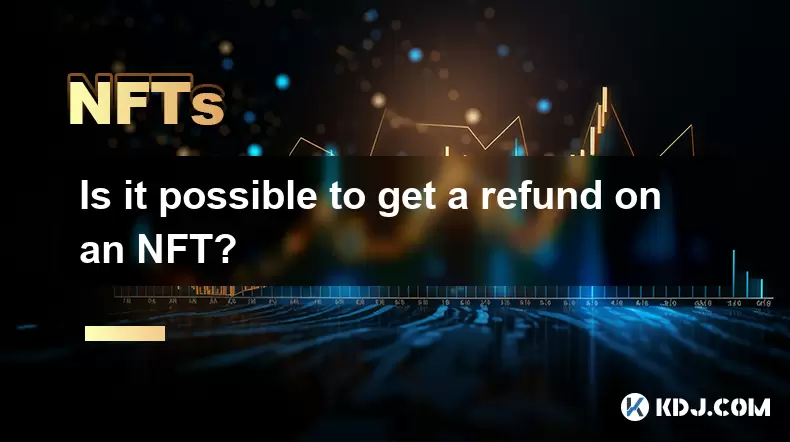
Is it possible to get a refund on an NFT?
Jul 21,2025 at 08:35pm
Understanding NFT Transactions and RefundsWhen you purchase an NFT (Non-Fungible Token), the transaction is typically recorded on a blockchain, making...
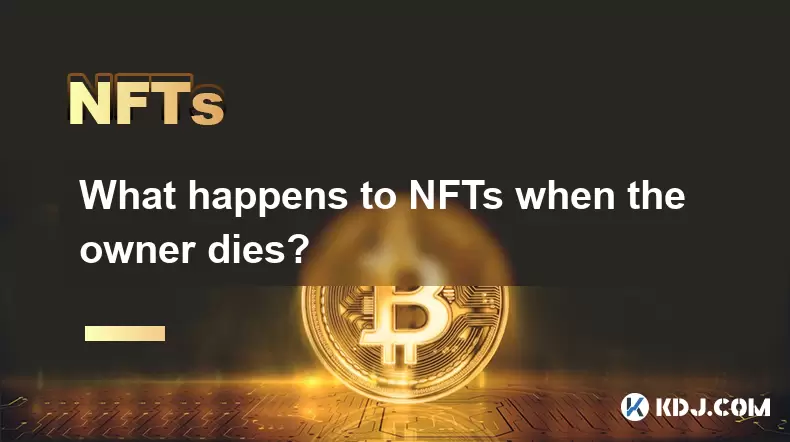
What happens to NFTs when the owner dies?
Jul 22,2025 at 02:43pm
Legal Ownership and Digital AssetsWhen an individual owns NFTs, the question of what happens to these assets upon their death is a pressing one. NFTs ...
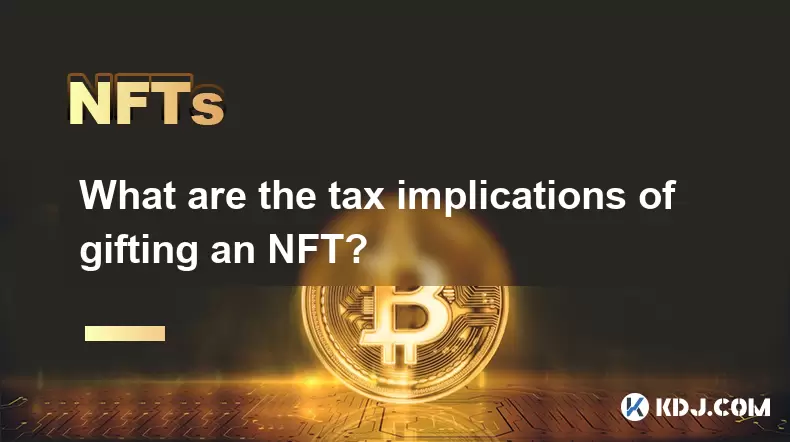
What are the tax implications of gifting an NFT?
Jul 19,2025 at 04:21am
Understanding the Basics of NFT GiftingGifting a Non-Fungible Token (NFT) involves transferring ownership from one individual to another without recei...
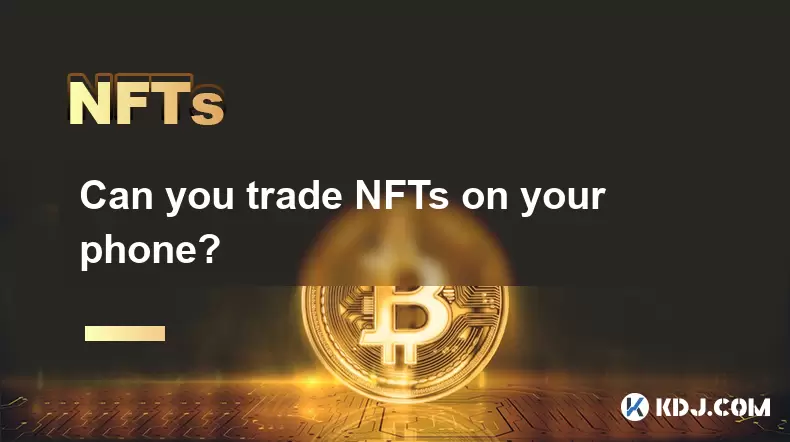
Can you trade NFTs on your phone?
Jul 18,2025 at 04:29am
Trading NFTs on Mobile DevicesYes, you can trade NFTs on your phone, and the process has become increasingly streamlined thanks to a variety of mobile...
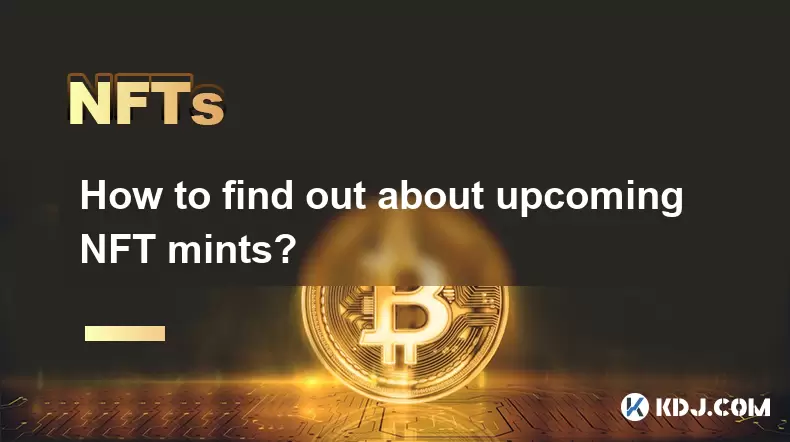
How to find out about upcoming NFT mints?
Jul 18,2025 at 11:50am
Exploring NFT Minting OpportunitiesUnderstanding the landscape of upcoming NFT mints is crucial for collectors, investors, and creators who wish to st...
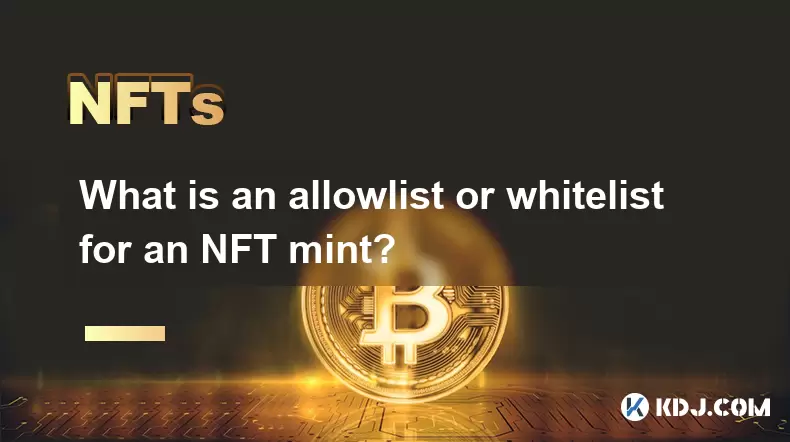
What is an allowlist or whitelist for an NFT mint?
Jul 20,2025 at 07:14pm
Understanding the Concept of an Allowlist for NFT MintingAn allowlist, also commonly referred to as a whitelist, is a mechanism used in the NFT mintin...

Is it possible to get a refund on an NFT?
Jul 21,2025 at 08:35pm
Understanding NFT Transactions and RefundsWhen you purchase an NFT (Non-Fungible Token), the transaction is typically recorded on a blockchain, making...

What happens to NFTs when the owner dies?
Jul 22,2025 at 02:43pm
Legal Ownership and Digital AssetsWhen an individual owns NFTs, the question of what happens to these assets upon their death is a pressing one. NFTs ...

What are the tax implications of gifting an NFT?
Jul 19,2025 at 04:21am
Understanding the Basics of NFT GiftingGifting a Non-Fungible Token (NFT) involves transferring ownership from one individual to another without recei...

Can you trade NFTs on your phone?
Jul 18,2025 at 04:29am
Trading NFTs on Mobile DevicesYes, you can trade NFTs on your phone, and the process has become increasingly streamlined thanks to a variety of mobile...

How to find out about upcoming NFT mints?
Jul 18,2025 at 11:50am
Exploring NFT Minting OpportunitiesUnderstanding the landscape of upcoming NFT mints is crucial for collectors, investors, and creators who wish to st...

What is an allowlist or whitelist for an NFT mint?
Jul 20,2025 at 07:14pm
Understanding the Concept of an Allowlist for NFT MintingAn allowlist, also commonly referred to as a whitelist, is a mechanism used in the NFT mintin...
See all articles

























































































